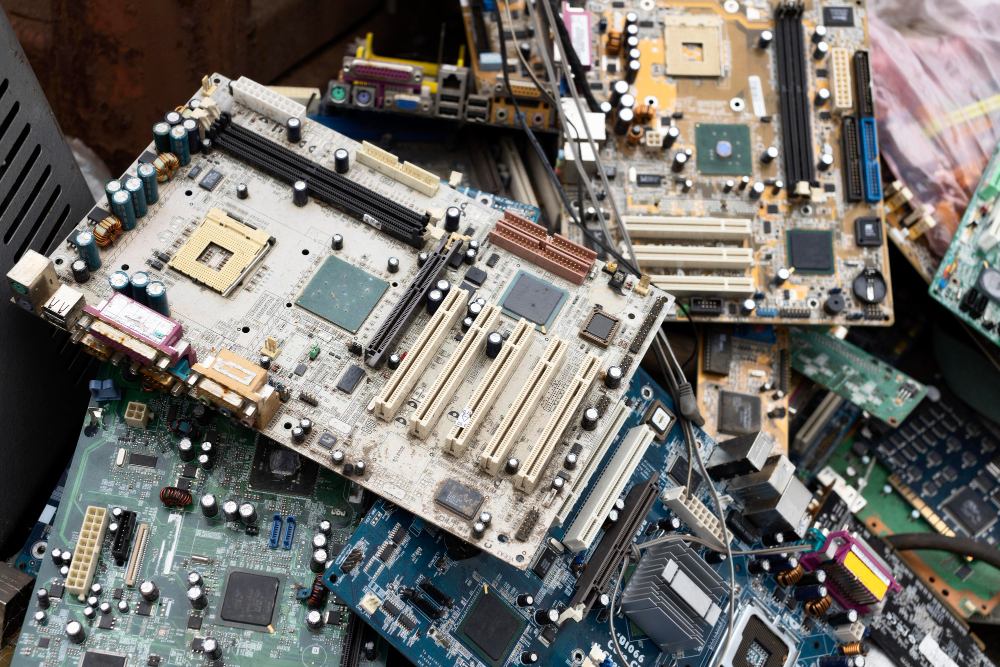Menu
Menu

In today's digital age, we rely heavily on our electronic devices for everything from communication and entertainment to work and personal finances. As technology advances rapidly, we often find ourselves upgrading or replacing these devices, leaving us with the question: What happens to the data stored on our old electronics when we discard them?
The answer, unfortunately, can be unsettling. Many individuals believe that simply deleting files or formatting their devices is sufficient to erase their data. However, the reality is far more complex. Residual data fragments can often be recovered, putting your personal information and privacy at risk.
In this blog post, The Junk Tycoons explores the fate of data after electronics are disposed of. We'll discuss the dangers of improper disposal, highlight secure disposal methods, and provide essential tips to ensure your data remains protected even after you say goodbye to your old devices. The Junk Tycoons is a trusted junk removal service offering reliable and budget-friendly electronics removal and recycling services. Let’s look at the possible scenarios when electronics are discarded.
Reputable electronics disposal services often employ data wiping or data destruction methods to ensure that all information on the devices is erased. Data wiping involves overwriting the existing data with random characters, making it difficult or impossible to recover. Data destruction physically destroys the storage media, rendering data recovery impossible.
Responsible electronics recyclers follow strict guidelines to protect data privacy. They may employ data sanitization techniques before recycling the devices. These facilities often hold certifications, such as R2 (Responsible Recycling) or e-Stewards, which require adherence to high standards, including secure data handling.
Unfortunately, improper disposal practices, such as throwing electronics in regular waste bins or landfills, can pose a significant risk to data security. Dumping in landfills exposes your data to anyone who might access the electronics, potentially leading to identity theft or other data breaches. It's essential to avoid this method as it exposes your data to potential retrieval by unauthorized individuals.
Always work with trusted electronics recycling services or recycling facilities that follow recognized standards and guidelines for data security.
Before wiping or destroying any device, ensure you've backed up all your essential data to a secure location like a cloud storage service or an external hard drive. This ensures you don't lose irreplaceable information during the data wiping process.
If you're handling the disposal internally, use reliable data wiping tools or software to erase information from the devices thoroughly. These tools overwrite existing data with random patterns, making it virtually impossible for anyone to recover your information. Some popular data wiping software includes DBAN, CBL Data Shredder, and Blancco Drive Eraser.
Caution: Never donate or sell your electronics without wiping your data first. Even if you think you've deleted everything, residual files and information can often be recovered. Wiping your data ensures your privacy and protects the new owner from potential security risks.
Research and locate certified e-waste recycling facilities in your area. These facilities use secure data wiping or destruction methods to ensure your data remains confidential. Avoid informal or uncertified recyclers who may handle your electronics in an insecure manner.
If your device has removable storage media like SD cards or USB drives, remove them beforehand. Destroy these media separately using appropriate methods like physical shredding or degaussing. This prevents any residual data from being accessible on these storage devices.
Do not entrust your electronics to a junk hauler without a proven track record. Turn to The Junk Tycoons for professional electronics removal and recycling services. Our team will ensure your data is erased correctly and your identity is safe.